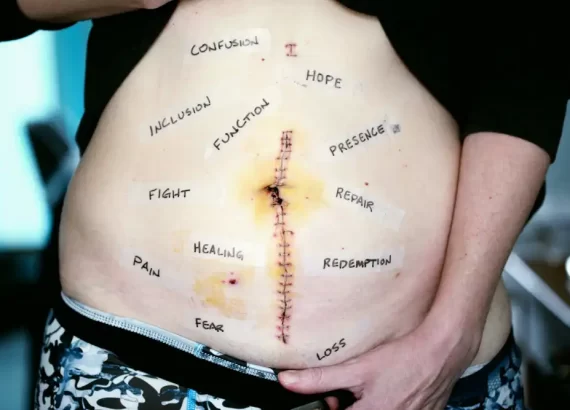Knowing the Signs & Symptoms of C-PTSD

One of the many challenges therapists face is helping clients navigate the difference between mental health issues presented in the media and the reality of what they may be facing in their lives. For example, while PTSD is frequently presented in media through depictions of flashbacks and nightmares, its close cousin, Complex PTSD (C-PTSD), receives much less attention. As a result, many people with C-PTSD do not realize how deeply they’ve been affected by their exposure to traumatic experiences. Because of this, they don’t seek out the help they need to manage and process those feelings.
In today’s post, we’ll look at the signs and symptoms associated with C-PTSD.
Causes of C-PTSD
First and foremost, it’s important to understand that C-PTSD results from prolonged exposure to a traumatic event. Often that could mean anything from growing up in an abusive home, a dangerous neighborhood, or in proximity to drug and alcohol abuse. It could also be the product of repeated or severe bullying online or at school.
People with C-PTSD often didn’t have the luxury of a childhood in the way that most people do. In many cases, they pride themselves on this fact. Where others grew up feeling safe, they needed to survive. Unfortunately, those same tools that helped them survive their childhood sometimes prove problematic in adulthood.
Common causes for C-PTSD include:
- Childhood Abuse
- Domestic violence
- Sexual Abuse \ Trafficking
- Emotional abuse or neglect
- Repeated \ Prolonged Bullying
- Periods of Captivity
- Exposure to War \ Violence

Shared Signs of C-PTSD \ PTSD
One of the trickiest parts about C-PTSD is that it shares many of the same core symptoms as PTSD. It’s only recently that therapists have begun to understand the physiological impact of trauma on the body, particularly the brain. As a result, while PTSD and C-PTSD share many common symptoms, C-PTSD includes additional features not commonly seen in those with PTSD.
Some of the signs & symptoms common to both PTSD & C-PTSD include:
- Flashbacks
- Lack of Focus
- Memory Problems
- Insomnia
- Irritability
- Depression
- Hypervigilance
- Avoidance
With either PTSD or C-PTSD, there is often a sensitivity to sensory information that recalls traumatic experiences—sights, sounds, smells, and sensations. In addition, there may be triggers that cause physiological reactions.
Unique Features of C-PTSD
Where PTSD symptoms are often related directly to a specific traumatic event, C-PTSD’s symptoms are often emotional and pervasive. The aftershocks of that period of trauma can be felt throughout the life of an individual with C-PTSD, impacting not just their sense of self but their relationships with others and their ability to regulate their emotions.
Common signs and symptoms specific to C-PTSD include:
- Negative Self-Concept: Typically, this may be a sense of guilt or shame over what happened. It could also be a sense of being broken, flawed, or ruined by the events that transpired. Some feel worthless or even as if they are less than human.
- Interpersonal Problems: Individuals with C-PTSD often have difficulty establishing or maintaining relationships. As a result of the trauma experienced as children, many people with C-PTSD find it difficult to form trusting relationships with others.
- Emotional Dysregulation: A common feature of C-PTSD is an inability or difficulty controlling emotional responses. This can present as self-destructive or reckless behavior, outbursts—attempts at suicide or self-harm, etc.
- Heightened Sensitivity: Those with C-PTSD are often extra sensitive to perceived threats, criticism, or abuse. This sensitivity often feeds into emotional dysregulation and other interpersonal problems they may be experiencing.
Online Counseling for C-PTSD in NC, SC, and FL
C-PTSD is not something to be taken lightly or that should be suffered without support. In many ways, individuals with C-PTSD are still rooted in the past—surviving a situation they may have physically escaped but are emotionally trapped inside. Treatment isn’t a matter of getting over it or toughing it out. Prolonged exposure to trauma impacts how various areas of the brain function. Repairing and rewiring those connections requires the assistance and support of a qualified professional.
Reach out if you want to learn more about C-PTSD and how it can be treated. You don’t have to let the past continue to dictate your future.




